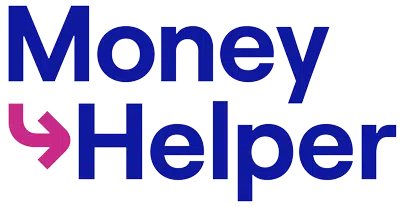
What is debt consolidation?
When you use a debt consolidation service, you take out a new loan to repay your existing debts. You are then left with one monthly sum to pay rather than several payments.
There are two different types of debt consolidations loans:
- Secured – A secured Debt Consolidation Loan is like a second mortgage in that it is tied to your property. This means that if you miss payments or cannot repay your loan, the lender can repossess and sell your property, and your credit rating will be impacted.
- Unsecured – This type of Debt Consolidation Loan provides you with the funds needed to pay off your debts without connecting it to your property or any other assets. This means that if you have trouble making repayments, the lender cannot take your property. However, your credit rating will still be affected.
However, a consolidated loan can come with its own drawbacks, hidden costs and fees, and credit implications if repayments aren’t made on time. This means that although a cheaper monthly repayment can make savings in the short term, you could end up repaying more in the long term.
When considering a consolidation loan, it’s therefore important to understand what your aims are. If you have a stable income and can comfortably afford repayments, this may be an option. If you are struggling with existing repayments, have poor credit, or your current or future income is unstable, a consolidation loan could make your current debts worse.Before taking out this type of loan, it’s a good idea to do your own research and seek personalised debt advice from a service like MoneyHelper, which offers free, impartial advice, or from our debt experts. You can also use our interactive debt consolidation calculator to get an idea of whether debt consolidation might be a viable option for you.
Why a Debt Consolidation Loan Might Not Be Right for You
While debt consolidation loans can seem like a straightforward solution, they’re not always the most effective or accessible option for everyone. Here are some of the potential risks of this type of financial strategy:
- Upfront fees and charges may make your debt more expensive
Even if you get a lower interest rate, your overall debt might work out to be more expensive than it was before when you factor in fees and charges, such as origination fees, balance transfer fees and prepayment penalties. It’s important to do your sums before you take a debt consolidation loan to ensure you won’t end up worse off financially.
- Your interest rates may be high, especially if you have poor credit
Debt consolidation loans are designed to simplify payments but they can sometimes come with higher interest rates than your original debts, especially if you have a poor credit history. This means you could end up paying more in the long term, making it more difficult for you to reduce your overall debt and potentially leading to a longer repayment period. It is still possible to get a debt consolidation loan if you have bad credit. However, the terms won’t be as favourable as they would be if you had a good credit rating.
- Missed repayments will negatively impact your credit score
If you miss payments on your debt consolidation loan, your credit rating will suffer so it’s important to make sure that your new loan will be affordable, especially if it has higher interest rates.
- Risk of property loss if you take out a secured loan
If you take out a secured debt consolidation loan, there is a risk that your property could be repossessed if you do not keep up repayments. Without careful repayment and spending habits, consolidation might not effectively resolve your existing financial difficulties.
- Risk of accumulating more debt
If you free up your available credit by paying your debts, you may be tempted to accumulate more debt. This could lead to a worse financial situation.
Alternatives to Debt Consolidation Loans
There are several debt management solutions that may work better for you than a Debt Consolidation Loan. These all come with their own benefits and drawbacks so understanding how each option works is key to finding the right fit for your financial situation. Some debt consolidation alternatives include:
Debt Management Plan
A Debt Management Plan is a type of informal agreement that you reach with your creditors to repay your debts with one affordable monthly payment. You do this without taking on more debt.
Eligibility: Debt Management Plans apply only to ‘unsecured’ debts, which are debts not backed by your property.
Pros:
- Someone else deals with your creditors on your behalf
- You only need to make one monthly payment
- You may be able to negotiate lower interest rates
- Your credit score may improve if you make repayments on time
- You can cancel a DMP at any time
Cons:
- It may take longer to pay off your debt if you’re paying less each month
- You may have to pay a fee to your DMP provider
- As a DMP is not legally binding, your creditors may refuse it or continue to chase you for payments
- The DMP may appear on your credit file, potentially affecting your ability to obtain credit in the future
- You may struggle to get a mortgage if you have a DMP in place
Suitability: If you’re having trouble keeping up with credit card or loan repayments, but can afford your living costs and any priority debts, a Debt Management Plan could be a suitable option for you.
Debt Relief Order (DRO)
An alternative to bankruptcy, a Debt Relief Order (DRO) is an option for managing personal debts you can’t afford to repay, offering a fresh start with certain limitations.
Eligibility: Available to people who don’t own their own home and have less than £75 per month in disposable income and debts lower than £50,000.
Pros:
- You don’t have to make payments on most debts included in your DRO
- A DRO can cover most types of unsecured debt
- Creditors can take no further action against you
- You don’t have to go to court
- After 12 months, most of the debts included in your DRO will be written off
Cons:
- You will need to tell potential creditors about the DRO if you want to borrow £500 or more
- Your details will appear on the Insolvency Service’s Individual Insolvency Register (which is open to the public) while the DRO is in place and for three months afterwards
- A DRO will appear on your credit file for up to six years, lowering your chances of getting credit during this time
- You may have difficulty opening a new bank account while a DRO is in force and for some time after
- There are tight restrictions on who can apply for a DRO
Suitability: A DRO may be a good option for you if you’re struggling with unmanageable debt, have limited income and little to no assets.
Individual Voluntary Arrangement (IVA)
IVAs are formal, legally binding agreements between you and your creditors to pay back your debts over a set period of time (5 or 6 years). You make an affordable monthly payment over this period, and any remaining debt included in the IVA is written off at its conclusion once all payments have been made.
Eligibility: Available to people who are more than £6,000 in debt and owe money to at least two different creditors.
Pros:
- Some of your debts will be written off if you adhere to the terms of your agreement
- Your creditors cannot take legal action against you
- You don’t have to sell assets such as your home and car to make repayments
- Interest on your debt will usually be frozen
- Reputable IVA service providers can give advice and support during the IVA period
Cons:
- Your credit score will be negatively affected
- Secured loans, such as mortgages or car loans, are not covered by IVAs
- You may have to make significant lifestyle changes in order to make repayments and avoid bankruptcy
- Your details will appear on the public Individual Insolvency Register, which can be viewed by anyone
- Creditors can refuse an IVA
Suitability: An IVA may be a suitable option if you are struggling with unsecured debts, can afford to make regular repayments, want to protect your assets and clear your debt in a structured way.
Bankruptcy
Bankruptcy is a legal process that allows individuals who are unable to repay their debts to clear them or make a plan to repay part of what they owe.
Eligibility: You may be eligible for bankruptcy if the amount you owe is greater than the value of your assets and you have the means to pay the bankruptcy fee (£680).
Pros:
- Most unsecured debts are written off after 12 months, giving you a fresh start financially
- Your creditors aren’t allowed to chase you for payments or take court action against you
- Your creditors can’t add any interest or charges on your debt
Cons:
- Bankruptcy stays on your credit file for six years
- You may lose assets as they will become property of the ‘official receiver’
- Your bankruptcy will be publicly listed on the Insolvency Register
Debt Arrangement Scheme (Scotland)
Eligibility: Available to individuals and couples living in Scotland who have one or more debts and a reasonable amount of disposable income to pay into the debt payment programme (DPP).
Pros:
- You don’t have to sell your assets to pay off your debts
- You’re protected from enforcement action
- Interest and debt charges are suspended during the DPP
- There are no restrictions on the type of work you can do (unlike bankruptcy)
- It’s free to set up a DPP under DAS
Cons:
- Debts aren’t written off
- You might have to make repayments for a long time
- Your credit score will be negatively affected
- It can be harder to borrow money during a DPP
- Your home could be repossessed if you have mortgage or rent arrears
Suitability: If you have enough money coming in to make regular repayments, you don’t want to have to sell your property and your job might be negatively impacted by other debt options (such as bankruptcy), the Debt Arrangement Scheme might be a good option for you.
Combining Your Unsecured Debts with MoneyPlus
At MoneyPlus, we can help you manage your unsecured debts without taking on new credit or loans. Instead of consolidating through borrowing, we offered tailored solutions like IVAs, Debt Management Plans, Debt Relief Orders, bankruptcy support and the Debt Arrangement Scheme, depending on where you live and your unique financial situation.
These options can help you to combine your debts into one affordable monthly payment, sometimes with the possibility of reducing your interest and charges. Our aim is to help you regain control of your finances for the long-term without taking on further debt.
Comparing Debt Consolidation Loans vs. Debt Solutions
While debt consolidation loans involve taking out additional credit to repay existing debts, other debt solutions, like IVAs, DMPs and DROs, allow you to manage what you owe without further borrowing.
Here’s a quick comparison to help you understand the difference:
| Feature | Debt Consolidation Loans | Other debt solutions (IVAs, DMPs, DROs, etc) |
| Costs | Total costs may be higher over time due to interest, fees and charges. Interest rates can be high, especially if you have a poor credit history. | Monthly payment based on what you can afford. Usually little or no interest. |
| Risks | If secured, your assets may be at risk if you default. Missed payments can worsen your credit rating. If spending habits aren’t addressed, taking on new credit can result in increased debt. | Assets are not usually at risk (except in the case of bankruptcy). Your credit rating will be affected while the debt solution is in place and for a time after. Failing to comply with debt solutions can lead to creditor action. |
| Eligibility | May not be available if you have poor credit. Need to be able to repay the full loan plus interest. | Varies depending on the particular solution you choose but there are solutions for people on low incomes (DROs) and people who owe money to multiple creditors (IVAs). |
| Long-term outcomes | May make your finances easier if well managed. May help in the short-term but can make the repayment period longer. Debts are not written off. | Can reduce your debt over time. Possibility of debt being written off in some circumstances. Can protect you against creditor communication and court action. |
Get debt help
For information about alternatives to debt consolidation in the UK, get in touch with our debt experts.

Are you ready to find your debt solution?
- Affordable monthly payment
- Reduce creditor contact
- Potentially stop interest and charges

“It’s made a big difference to me and how I live.“
— Helen, Aberdeenshire *
Read Helen’s story…
Frequently Asked Questions
Can I consolidate debts without a loan?
Yes, it is possible to consolidate your debts without taking out a loan. Debt solutions, such as IVAs, DMPs and DROs, can combine your unsecured debts into one affordable monthly payment, often with a frozen or reduced interest rate. These solutions can help you to manage what you owe without additional borrowing.
Is it better to get a loan or use a debt solution?
The best course of action will depend on your unique financial situation. If you have good credit, a steady income, the ability to make repayments and you’re committed to getting out of debt, a debt consolidation loan might be an option for you if you want to simplify your finances. If you’re struggling to keep up with repayments or you can’t afford to repay a debt in full, an alternative debt solution like an IVA, DMP or DRO may be more suitable.
Can I get a Debt Consolidation Loan with bad credit?
If you have poor credit, you may still qualify for a Debt Consolidation Loan but it’s likely to come with higher interest rates.
Will consolidating debts hurt my credit score?
Applying for a debt consolidation loan can cause a small dip in your credit score. However, if you consistently make repayments on time, your credit score could improve slowly over time. On the other hand, if you miss payments, your credit score could be negatively affected.
Why can’t I get a Debt Consolidation Loan?
You may not qualify for a Debt Consolidation Loan if:
- You have a low credit score
- You don’t have sufficient income
- You have too much debt compared to your income
- You have missed repayments
- You have recently been made bankrupt.
If you have been refused a Debt Consolidation Loan, it’s a good idea to discuss alternative solutions with a debt adviser to find the best option for you.


Discover more about the options available for repaying your debt, or visit www.moneyhelper.org.uk for free debt advice.
Still unsure or wish to know more?
Looking for more debt consolidation advice and information? Our advisors are here to help.
At MoneyPlus, we understand that your financial situation is unique, and we will treat you with the care and individuality you deserve.
So, get in touch with our team today and start living better.
